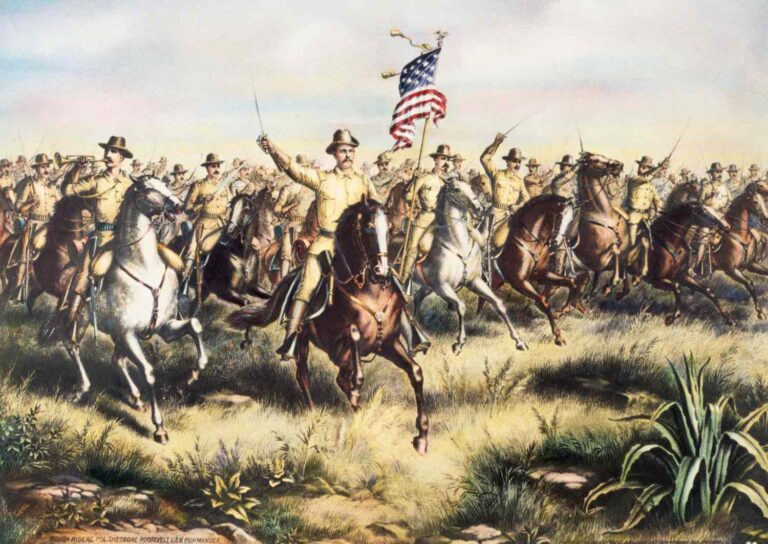The advent of written language has undoubtedly shaped the course of human civilization, birthing an era of knowledge transmission, record-keeping, and societal evolution that continues to impact us today. In this exploration of the subject, we delve into the fascinating journey of “Unleashing the Power of Words: The Rise of Writing and Its Impact on Civilization”.
With the inception of writing, humanity leaped forward, setting the stage for advancements in culture, politics, and technology. Its transformative power lies not only in its ability to document history or share knowledge, but also in its role as a tool for influencing the psyche, shaping perceptions, and steering societal norms. These intriguing aspects will form the core of our discourse.
From ancient cave inscriptions to modern digital texts, writing has continuously evolved, adapting to the changing needs and technologies of the time. The ripple effects of these evolutionary leaps are far-reaching and provide us with insightful perspectives into human development and culture. We will journey through this fascinating evolution, examining the myriad ways in which writing has changed the face of communication and impacted our lives.
Finally, we will explore the future of writing and its potential to shape our world. With the advent of artificial intelligence, machine learning, and other cutting-edge technologies, the art and science of writing are on the cusp of yet another transformation. Join us as we peer into the future, conjecturing the potential impacts and innovations that may once again revolutionize our civilization.
The Power of the Written Word
The written word has been a cornerstone in human civilization since the dawn of history. Its influence is evident in the growth and development of societies, economies, and cultures worldwide. From the ancient Sumerian cuneiform script to modern digital texts, writing has evolved to become an indispensable tool for communication, record keeping, and knowledge dissemination.

One of the significant ways writing has impacted civilization is through the dissemination of information. Before writing, oral tradition was the primary means of passing down knowledge. However, this method was fraught with limitations. Firstly, it was vulnerable to loss due to memory lapses or the death of the storyteller. Secondly, oral tradition could lead to distortions in the original message over time. Writing provided a more reliable and efficient means of preserving and transmitting knowledge.
Beyond ensuring accuracy, the advent of writing enabled the documentation of complex ideas and the recording of historical events with precision. Societies could now codify laws, record treaties, and compile detailed chronicles of their achievements and failures. This reliable record keeping paved the way for organized governance, as well as the development of legal systems that form the backbone of modern societies.
Moreover, the written word became a catalyst for scientific advancement. Early scholars documented observations and theories on clay tablets and papyrus, which allowed for the accumulation and refinement of knowledge in fields such as astronomy, medicine, and mathematics. By building upon written records, subsequent generations were able to push the boundaries of understanding, resulting in innovations that transformed human life.
Writing also played a crucial role in bridging cultural divides. Translated texts and shared manuscripts allowed ideas, beliefs, and customs to travel across regions, fostering cross-cultural dialogue and exchange. This intermingling of knowledge helped create more dynamic and diverse societies, where the flow of information contributed to intellectual and artistic flourishing.
In addition, the written word has long been a medium for personal expression and creative exploration. Literature, poetry, and philosophy have provided insights into the human condition, offering perspectives that continue to resonate through the ages. Through storytelling and documentation, writing has connected individuals across time and space, inspiring countless movements and sparking social change.
Ultimately, the power of the written word lies in its capacity to immortalize ideas, shape collective memory, and inspire progress. It remains a vital tool that continues to influence every facet of human civilization, from governance and science to art and culture, leaving an indelible mark on our shared history.
Spreading Information Across Borders
The advent of writing enabled societies to transmit information across time and space. No longer were messages confined to the range of a voice or the lifespan of an individual. Written documents could travel vast distances, cross cultural boundaries, and survive across generations. This ability to record and disseminate knowledge led to the rise of more complex societies and the advance of civilization.
Writing and the Rise of Institutions
The written word also played a crucial role in the establishment and growth of institutions. In the realm of law, for example, writing has been pivotal in creating, codifying, and enforcing legal systems. Writing allowed for the establishment of formal legal codes, the recording of legal precedents, and the maintenance of legal records.
Beyond law, the impact of writing on institutional development is far-reaching. Governments and administrative bodies relied on written documents to record decisions, issue decrees, and manage complex bureaucracies. These records provided continuity in governance, enabling institutions to function with consistency over long periods. The ability to document treaties, tax records, and administrative orders was fundamental to the operation of emerging states and empires, as it allowed leaders to manage vast territories and diverse populations.
In education, writing laid the foundation for the creation of schools, universities, and libraries. Written texts became the primary medium through which knowledge was preserved and disseminated. Institutions dedicated to learning emerged, allowing scholars to share ideas, debate theories, and build upon the intellectual heritage of previous generations. This structured transmission of knowledge was instrumental in fostering innovation and progress across various fields.
Religious institutions, too, benefitted immensely from the written word. Sacred texts and religious doctrines, once inscribed, provided a common framework for belief systems, unifying communities under shared spiritual and moral guidelines. These documents not only reinforced religious practices but also played a key role in shaping cultural identities and societal values.
In essence, writing served as the backbone of institutional development by providing a durable, consistent means of recording and communicating complex ideas. It enabled societies to establish structured systems of law, education, and governance—systems that continue to influence modern institutions. The enduring legacy of these written records is a testament to their power in shaping the frameworks that have governed human civilization for millennia.
Education and the Written Word
In the field of education, writing is fundamental. It is through written works that knowledge is captured, stored, and transferred from one generation to the next. Writing has enabled the rise of educational institutions, allowing for structured learning and the exchange of ideas across time and space.
The advent of written language transformed education by providing a reliable means of recording complex ideas, theories, and discoveries. Early scholars inscribed their insights on clay tablets, papyrus, and parchment, ensuring that important lessons were not lost over time. These records formed the basis for systematic instruction, enabling educators to build upon a shared body of knowledge that transcended individual memory. As literacy spread, communities established schools and centers of learning where these texts were studied, debated, and preserved.
Moreover, writing fostered the development of standardized curricula and formal educational systems. With written textbooks and treatises, educators could convey sophisticated concepts in subjects ranging from mathematics and science to philosophy and literature. This uniformity in knowledge transmission helped create a common intellectual framework, unifying diverse populations under shared educational ideals. Libraries and archives emerged as sanctuaries of knowledge, safeguarding rare manuscripts and serving as hubs for scholarly research.
Writing also played a crucial role in promoting critical thinking and analytical skills. By engaging with written materials, students learned to interpret, question, and synthesize information, skills that remain essential in today’s rapidly evolving world. The preservation and circulation of written works enabled cross-cultural exchanges and the diffusion of innovative ideas, further enriching educational experiences and spurring intellectual advancements.
Ultimately, the written word has been indispensable in shaping educational paradigms. Its role in capturing and disseminating knowledge has not only laid the groundwork for modern education but has also ensured that learning remains a dynamic, ever-evolving process, continually propelling society toward progress and enlightenment.
The Written Word and Technological Advancements
With the advent of technology, the written word has undergone a significant transformation. The development of the printing press in the 15th century marked a major turning point in the history of writing. It allowed for mass production of books, making knowledge more accessible to the masses.
Digital Writing and Its Impact
In the digital age, the impact of writing has been amplified to unprecedented levels. Digital writing platforms, such as blogs, social media, and online news sites, have democratized access to information and knowledge. Today, anyone with an internet connection can share ideas, opinions, and news with a global audience, breaking down the traditional gatekeeping that once confined content creation to a select few.
One of the most significant advantages of digital writing is its speed and reach. Content can be published and updated instantaneously, enabling real-time communication and engagement. This immediacy has transformed the way we consume information, fostering a culture where news and opinions circulate rapidly and continuously. The interactive nature of these platforms—through comments, shares, and likes—creates dynamic feedback loops, allowing writers and readers to engage in vibrant, ongoing dialogues that enrich the overall discourse.

Moreover, digital writing has expanded the possibilities for storytelling and creative expression. Multimedia elements such as images, videos, and interactive graphics can now be seamlessly integrated with text, resulting in more engaging and immersive narratives. This convergence of media not only enhances the reader’s experience but also opens up new avenues for innovative storytelling techniques that were not possible in traditional print formats.
The rise of artificial intelligence further promises to revolutionize digital writing. AI-powered tools can automate routine tasks such as proofreading, content summarization, and even generate original text based on given prompts. This automation allows writers to focus more on creative and analytical aspects while raising important questions about authorship, originality, and ethical implications.
In essence, digital writing has redefined communication in the modern era. It continues to bridge cultural divides, empower voices from all walks of life, and evolve as new technologies emerge—cementing its role as a transformative force in shaping our global society.
The Future of Writing
The future of writing is bound to continue evolving with technological advancements. As we move into an era of virtual reality, augmented reality, and AI, it is expected that writing will also adapt to these changes. Despite the shifts in the form and medium of writing, its core function as a tool for communication, knowledge preservation, and cultural expression will remain.
Challenges and Opportunities
With these technological advancements come challenges. Digital literacy, data privacy, and information overload are issues that need to be addressed. However, the possibilities are also exciting. The digital age brings unprecedented opportunities for creative expression, global connectivity, and knowledge accessibility.
- The written word, despite its evolution, remains a critical tool in human civilization.
- Writing has enabled the rise of complex societies, institutions, and technological advancements.
- Future developments in writing will present both challenges and opportunities.
The power of words is undeniable. From ancient scripts to digital texts, writing continues to shape the course of civilization, leaving an indelible impact on our lives. While its form may change, the power and importance of the written word remain constant.
Conclusão
In conclusion, “Unleashing the Power of Words: The Rise of Writing and Its Impact on Civilization” brilliantly highlights the transformative role writing has played throughout history. This compelling exploration emphasizes the profound influence of written language on the advancement of civilization, becoming a catalyst for cultural evolution, social structure, and economic development. Indeed, words have been, and continue to be, the cornerstone of human communication, innovation, and progression. As this article substantiates, the power of words has unequivocally shaped our collective experiences, enabling us to understand our past and forge ahead into the future. Notwithstanding the advent of digital communication, the essence of written language remains unscathed, affirming its timeless relevance. Ultimately, the legacy of writing transcends beyond simple information transmission; it is the indomitable force that fuels human connection and growth. This article leaves the reader with a profound sense of respect for the humble word, a tool that, in its simplicity, has changed the course of history.



